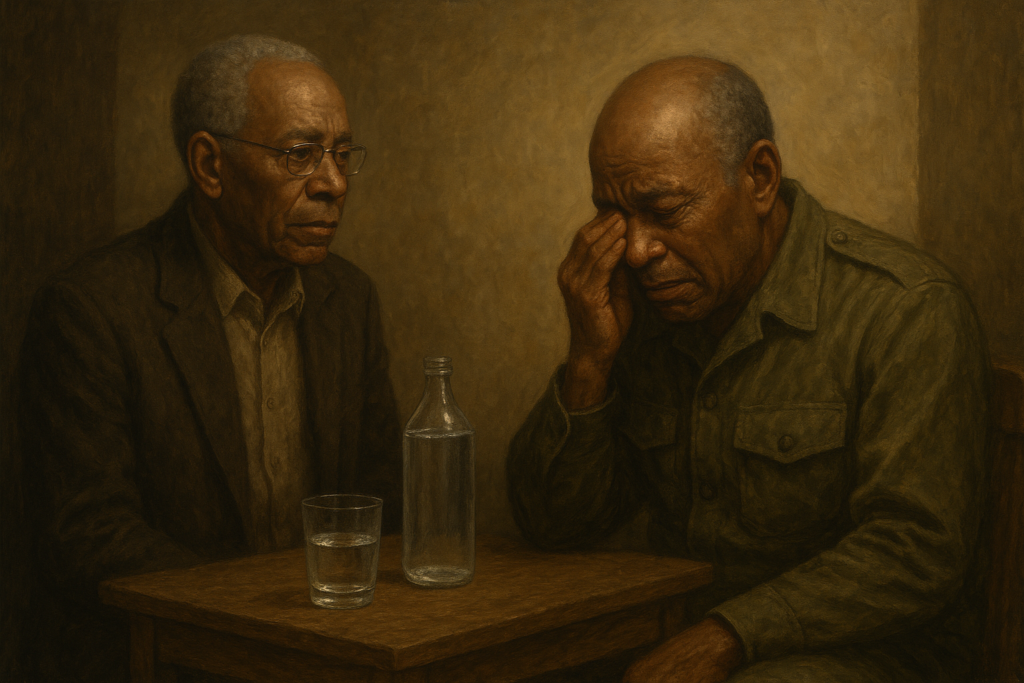
There once lived a wealthy man who married several women and had many children. While they were young and growing, he had no time to play with them, bond with them, or establish common family values. He was always busy with work. Paying bills and providing food, he insisted, were the only duties required of a man. “Let each child stay with their mother,” he would say. “It is only natural for women to raise children. I have neither the time nor the patience.”
And so, his children grew entirely under their mothers’ wings. Like many co-wives, the man’s wives often quarreled, fought, and bore grudges against one another — tensions that soon extended to their children.
Whenever they offended him, the man would beat and flog his wives mercilessly in full view of the entire household. Even friends, neighbours and visitors witnessed these humiliating scenes. He believed beating women proved his manliness and helped maintain domestic discipline. Despite repeated appeals for restraint and respect toward the mothers of his children, he never changed.
Within this troubled home, he also had favourites — wives and children he treated with undeserved kindness and generosity — and outcasts he subjected to open scorn and harshness. Thus, the family became known throughout the neighborhood as a house of commotion, bitterness and tears, held together only by a roof and a shared provider.
Now, the great man has grown old and weary. His strength and wealth have waned. His wives too are old. The children are adults. Yet the household remains a cauldron of strife. They quarrel over everything. They see one another as enemies and rivals, not as siblings. They trust strangers more readily than they trust themselves. Nothing binds them except an ageing mansion — once admired by all, now in desperate need of repairs and a fresh coat of paint.
The old man, in anguish, laments to anyone who will listen: “I do not know why my wives and children are so disagreeable. My household is full of strife. I do not want to go down to my ancestors this way.”
But his neighbours and friends keep their distance. They pity him quietly and mock him in private. He was a man who neither sought counsel nor accepted it.
One of his old friends finally summoned the courage to tell him openly what others whispered behind his back.
“You brought this upon yourself,” the friend said. “A household ruled by women always ends up like this—”
“That is unfair!” the old man interrupted. “I did not let my wives rule anything. I governed with an iron fist, to instill discipline. I provided as a man should.”
“You ruled only when you were around — and how often was that?” the friend replied. “For the rest of the time, the women were left to run the household as they could. You know how women are — with no disrespect intended. I, too, had a mother and now have a wife and daughters. They are wonderful beings, but they are not suited to carry the full burden of headship.
“And your so-called discipline was not tempered with justice, decency or compassion. It was all about your ego. No right thinking man chastises the mother of his children in the presence of the kids and strangers.”
“As for providing, you did your best. We all acknowledge that. But there are many things money cannot buy — one of them is peace; another is good upbringing. When your children were tender and impressionable, you had neither time nor interest in shaping them. Now they are grown, and they know only quarrels and rivalries.
“You are harvesting exactly what you planted, my friend. It is too late to cry. Be a man and bear your burdens. May the spirits have mercy on you.”
In anguish, the old man clenched his teeth, shook his head slowly, and looked away to hide his tears…
Victor Anazonwu is a historian, journalist and author. He is on the Editorial Board of The Renaissance Online Magazine.
![]()


